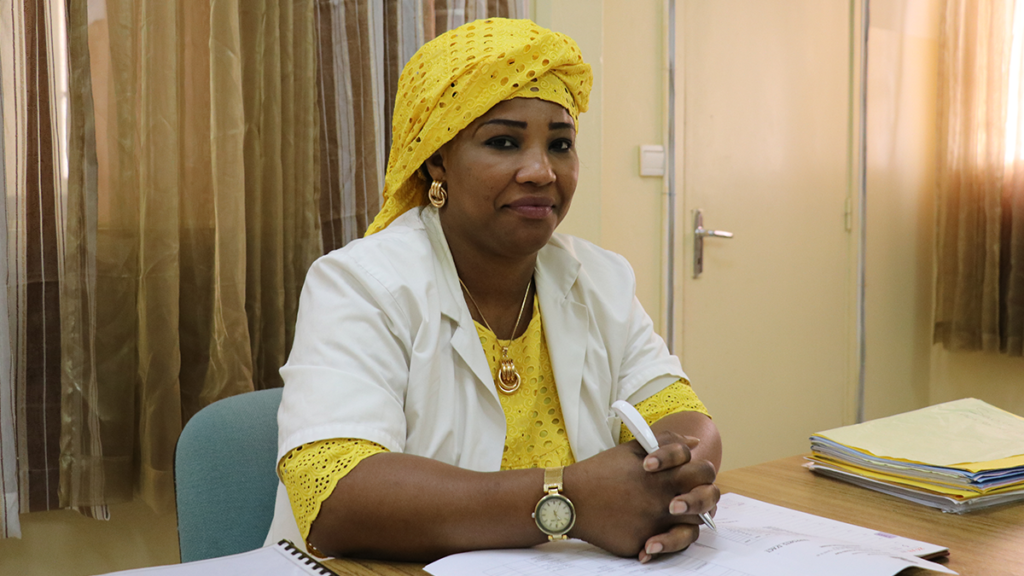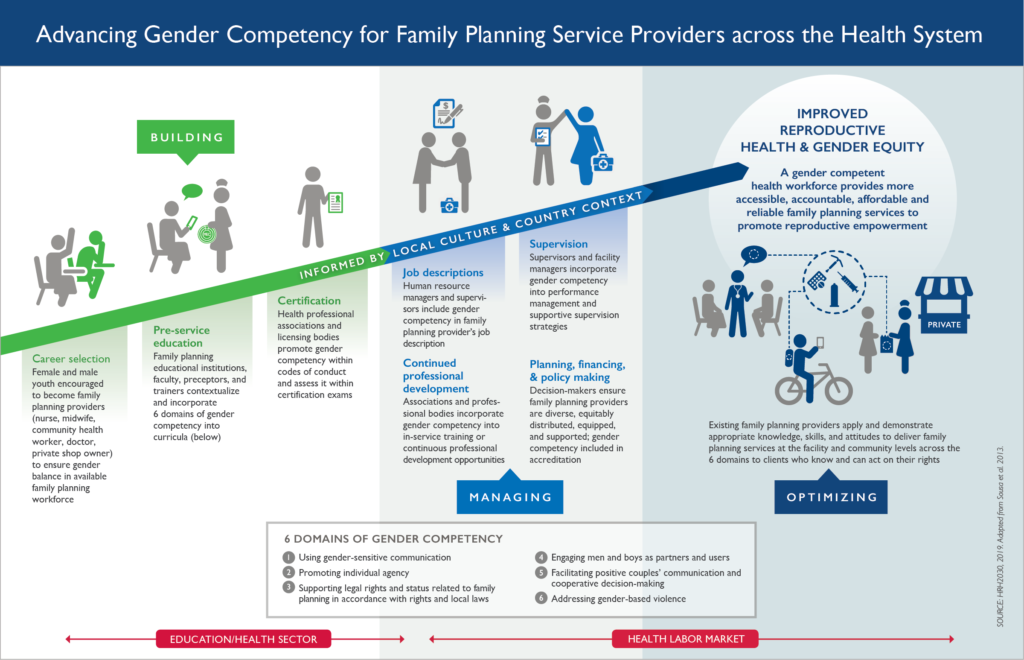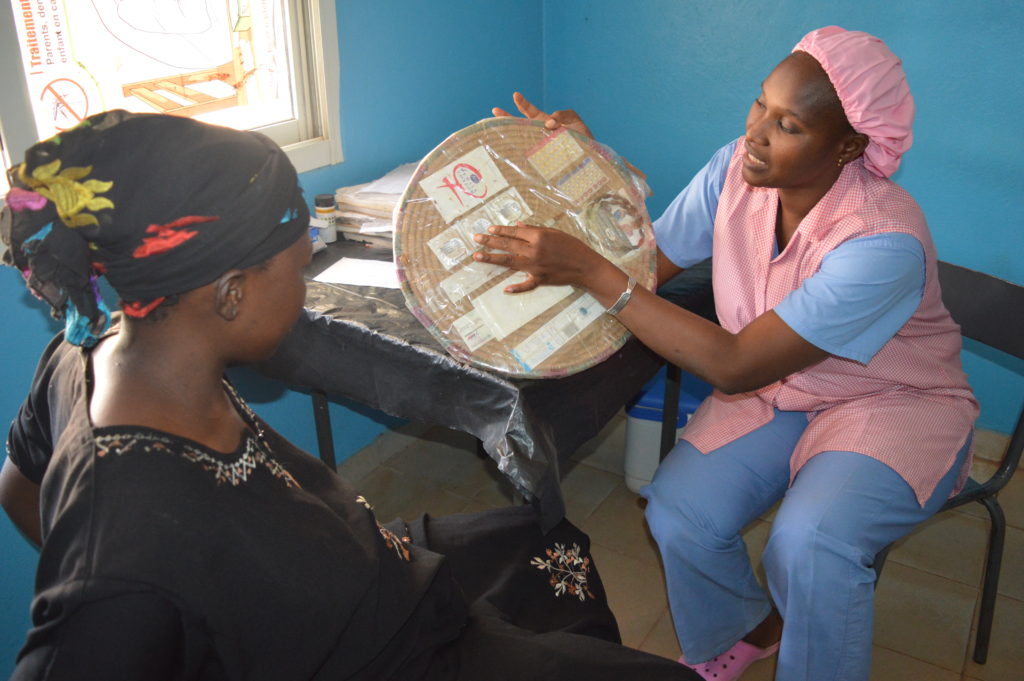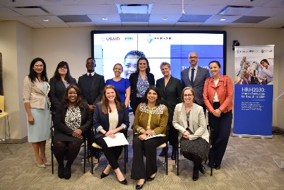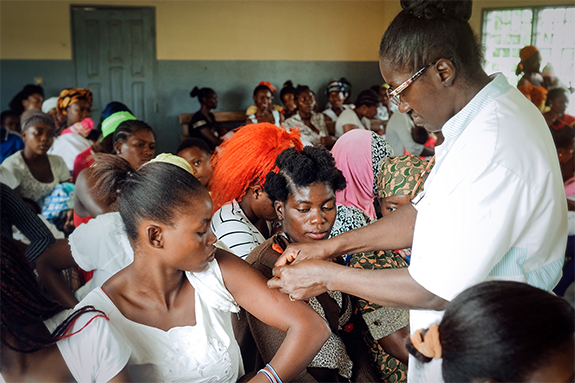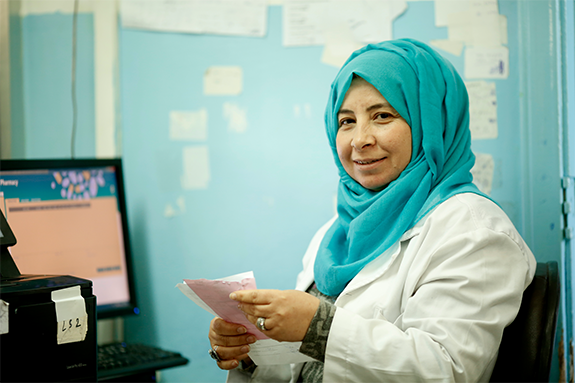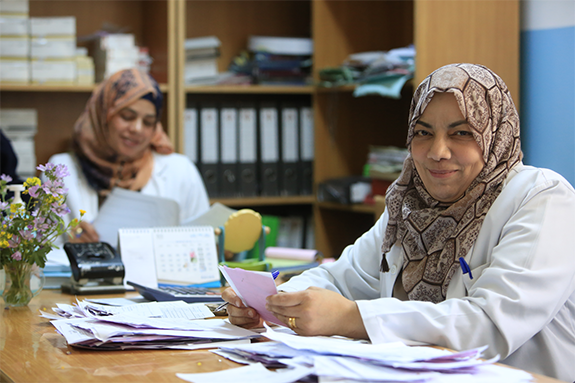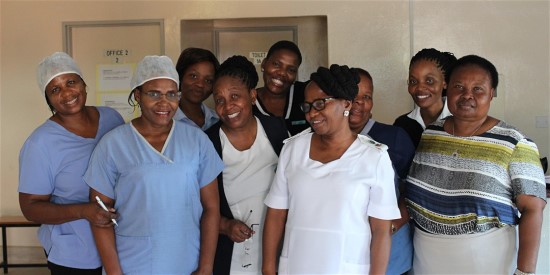
01 Mar A Compendium of HRH2030 Resources Regarding Gender, Women, and Health
Over the past six years, HRH2030 has worked in more than 30 countries to bolster the health workforce, improve health outcomes, and advance health for all. We support health workers by implementing activities to enhance productivity and performance; number, skill mix, competencies, and quality; health system leadership and governance capacity; and sustainable investments in human resources for health. While conducting our work in these areas, we have witnessed how women and men experience the health sector differently, as care providers or patients, and realize the importance of understanding why, and what that entails in order to make positive change and continue to strengthen our health systems. Women—despite representing more than 70% of the world’s health workers—are woefully underrepresented in high-level, decision-making positions—how can we change that? What would it mean if we did? When we look to address a projected global shortfall of 18 million health workers by the year 2030, how are we looking at health service provision in communities, including by local leaders and women’s groups, to meet health needs?
Last year, we compiled a variety of resources which consider these questions and more. In honor of International Women’s Day 2021, we have updated this compendium to include our more recent publications on gender:
Advances in family planning have focused largely on increasing the availability of services and expanding accessibility for women. But decisions about if, when, and how often to reproduce or follow through on a chosen method are intrinsically tied to gender norms and attitudes that influence client’s behavior. Likewise, family planning service providers have their own gender biases and perceptions. Updated in July, 2020, the Gender Competency Framework for Family Planning Service Providers lists the essential knowledge, skills, and attitudes for a FP provider to be gender competent.
Rise of Women in Leadership in Senegal’s Health and Social Action Sector
In Senegal, the proportion of women in leadership positions within the Ministry of Health and Social Action increased from almost zero in 2000 to 52% in 2016. HRH2030 led a study that developed a sex-disaggregated leadership inventory to determine if female participation in leadership positions increased after public or private sector institutions took specific measures or initiatives. We found that a part of this success story is concerted efforts to implement parity policies and gender strategies that encourage female leadership and gender equity. We also assessed the remaining gender gap, and the existing barriers and biases that contribute to it.
Applying Gender Competency to the HRH2030 Health Worker Life Cycle
In global health, gender competency should be incorporated and learned in pre-service education settings to allow care providers to create equitable opportunities for women and men to make voluntary and informed decisions. To show the many ways gender competency can apply for the health workforce, we adapted our HRH2030 Health Worker Life Cycle to illustrate the dynamics of the health labor market and the complex range of potential interventions to incorporate gender competency in strong HRH systems.
There are increasing efforts to reduce unnecessary medical barriers to contraception, which impede access and undermine women and couples’ rights. In this report, we document the extent to which 10 countries have adopted policies, service delivery guidelines, or other methods in line with current scientific evidence and WHO guidelines on task sharing and self-care. The report also highlights opportunities for advocacy and policy change at the country level to further reduce medical barriers and ultimately increase people’s access to family planning.
In April 2019, HRH2030 hosted this event to highlight the growing evidence that employment in the health sector empowers female health workers, their families, and communities. The convening featured a series of high-level speakers followed by Roopa Dhatt (Executive Director and Co-Founder of Women in Global Health) moderating a “lightning round” of expert implementers who shared their experiences of empowering families and communities through health sector programming. Relive it all through our livestream recording, flip through the slides, or peruse photos on our event’s web page here.
Local Leaders: Untapped Resources for Family Planning Technical Brief
In considering ways to meet the ambitious global goal of 120 million additional contraceptive users by 2020, HRH2030 considered new and different partnerships and strategies to improve the acceptability and accessibility of family planning. HRH2030 piloted a local leadership and management approach (LLMA) in the district of Bafia in Cameroon to test the hypothesis that engaging community leaders to support local health staff improves community awareness, acceptance, and interest in family planning information and services.
Women’s Enrollment in the Health Workforce Literature Review
One of the human resources for health challenges identified by the Ministry of Health in Jordan is the underrepresentation of female health workers in specific sectors/disciplines and certain geographical regions. This review provides an understanding of the nature, scope, depth, and breadth of existing policy documents, relevant studies, reports, academic articles, and data sources on women’s enrollment in the ministry’s health workforce.
Evidence-based Interventions to Promote Women in Health Management in Jordan
To best strategize ways to reduce gender inequalities in Jordan’s public and private health sectors and to promote qualified women into the decision-making sphere, stakeholders, including government and health institutions, need to understand the barriers and enablers to women’s career advancement to management positions in this workspace. Gender parity will strengthen the overall health system, which is critical for enhanced health outcomes in Jordan.
Evidence-based Interventions to Promote Women in Health Management in Jordan (Video)
On June 25, HRH2030 facilitated a national event in Jordan to promote women’s leadership in the health sector. At the event, HRH2030 disseminated its recent research on the barriers and enablers of women’s career progression to management positions in Jordan’s health sector. The findings are being used to inform national strategies and policies to strengthen women’s leadership and career progression to top-level management positions in Jordan’s health sector.
Women Leaders in Health Forum Strategy 2019-2022
HRH2030’s research into women’s leadership roles in Jordan’s health sector brought forth several recommendations including the establishment of a women’s health leadership network—what became the Women Leaders in Health Forum—to help address gender equity challenges. This document presents the key features of the Women Leaders in Health Forum’s strategic direction in Jordan.







